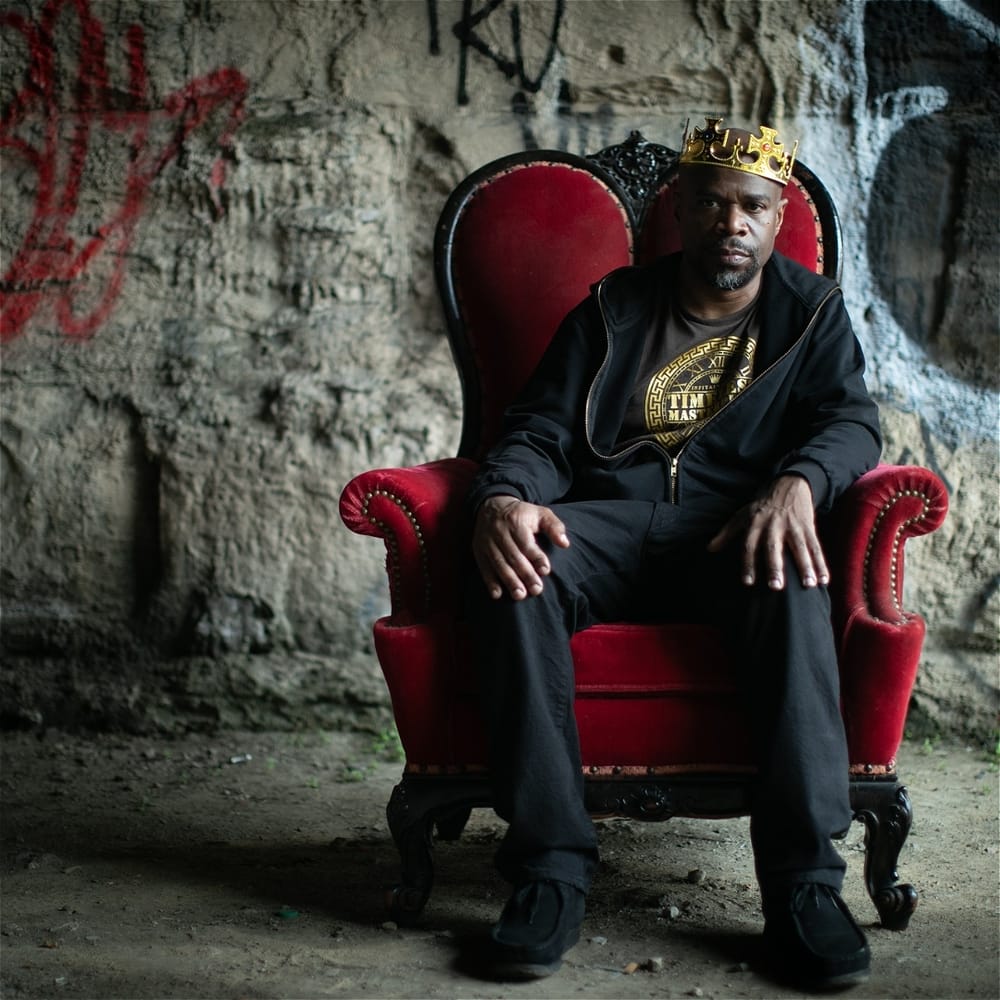Stay in the Loop
BSR publishes on a weekly schedule, with an email newsletter every Wednesday and Thursday morning. There’s no paywall, and subscribing is always free.
More memoir than Macbeth
Philly Fringe 2024: New Paradise Laboratories presents Jeffrey Cousar’s An Avalanche of ‘No’

An Avalanche of ‘No’—a solo Fringe show starring Philly-based actor Jeffrey Cousar, splitting the difference between autobiography and Shakespeare—opens with a declaration. As a child, Cousar saw a production of Macbeth at the Philadelphia Drama Guild featuring Andre Braugher as the Scottish king, a central performance so thrilling, so formative, that it fueled a lifelong ambition to play the part himself. But that was 33 years ago, and the intervening decades have been none too kind. Braugher passed away last year, and Cousar suffered a heart attack this May. The time to act, he tells us, is now.
Except, the piece that follows, directed by Whit MacLaughlin and performed at Christ Church Neighborhood House, is more memoir than Macbeth. Throughout the show, Cousar relays episodes of strife, of struggling as an ex-husband and co-parent while trying to achieve success as a Black actor, peppered with the occasional Shakespeare monologue. Intercutting Macbeth with Cousar’s life makes gestures at a compelling riff, positioning Macbeth as a kindred spirit for Cousar, another scorned soldier of fate. The piece never fully engages, though, with the implications of that parallel, and in the end, falls short of illuminating either Cousar or Macbeth.
Reflection and fantasy
Cousar establishes such a symmetry early on, particularly in a scene where he is swindled in a three-card monte. Unable to pick the correct card in a set of three queens—not unlike, he points out, the witches' three—a young Cousar loses the last of his cash and becomes a victim, like Macbeth, of fate and frustrated ambition. He sees Macbeth, though, not simply as a reflection of himself but also as a fantasy of what he might become. In reflecting on what most titillated him in the Macbeth he saw, he singles out a scene in which Braugher’s Macbeth dispatches his white enemies and throws them center stage, tumbling down a trapdoor.
This revenge fantasy would seem to invite a complication in Cousar’s adulation of Macbeth but from this point on, the piece rarely engages in such introspection, instead continuing to toggle between Cousar’s stories and Macbeth in styles that do neither any favors. Cousar is certainly an engaging storyteller, sincere and animated even if his tenor sometimes veers into that of a TED Talk, but his yarns often appear incomplete. So focused are they on his considerable pain that they seem to elide necessary details.
His Shakespeare, on the other hand, arrives in the manner of the eager student, well-articulated but so heavily prefaced as to divorce it from the context of both the original play and Cousar’s life. As a result, the transition between the two styles can be tonally quite jarring: bemoaning the cruelty of his ex-wife, for instance, and then skateboarding around the stage, intoning Lady Macbeth.
Achieving “tomorrow and tomorrow”
By the end, the piece hasn’t chiseled any deeper, its initial questions still mostly unexplored. Cousar finishes by reciting his favorite bit of Macbeth: the “tomorrow and tomorrow” soliloquy, in which Macbeth courts utter nihilism. On paper, the monologue is an apt choice here, given the Afro-pessimistic undertones of Cousar’s narration. But he frames it, yet again, not in the context of his own disillusionment but as an achievement for himself as an actor. However well he delivers the lines, the choice robs the monologue of any resonance it might impart on Cousar’s larger story, other than the simple fact of him performing it.
“I did it,” Cousar says, and that he has. But triumph is an odd coda for any riff on Macbeth, and one can’t help but wish that the speech had signified more than itself.
At top: Jeffrey Cousar in An Avalanche of ‘No.’ (Photo courtesy of New Paradise Laboratories.)
What, When, Where
An Avalanche of ‘No.’ By Jeffrey Cousar, directed by Whit MacLaughlin. $25. Through September 18, 2024, at Christ Church Neighborhood House, 20 N American Street, Philadelphia. (215) 413-1318 or phillyfringe.org.
Accessibility
Christ Church Neighborhood House is a wheelchair-accessible venue with a portable ramp, but the cobblestones outside may be difficult for some to navigate. Masks are required.
Sign up for our newsletter
All of the week's new articles, all in one place. Sign up for the free weekly BSR newsletters, and don't miss a conversation.

 Kiran Pandey
Kiran Pandey